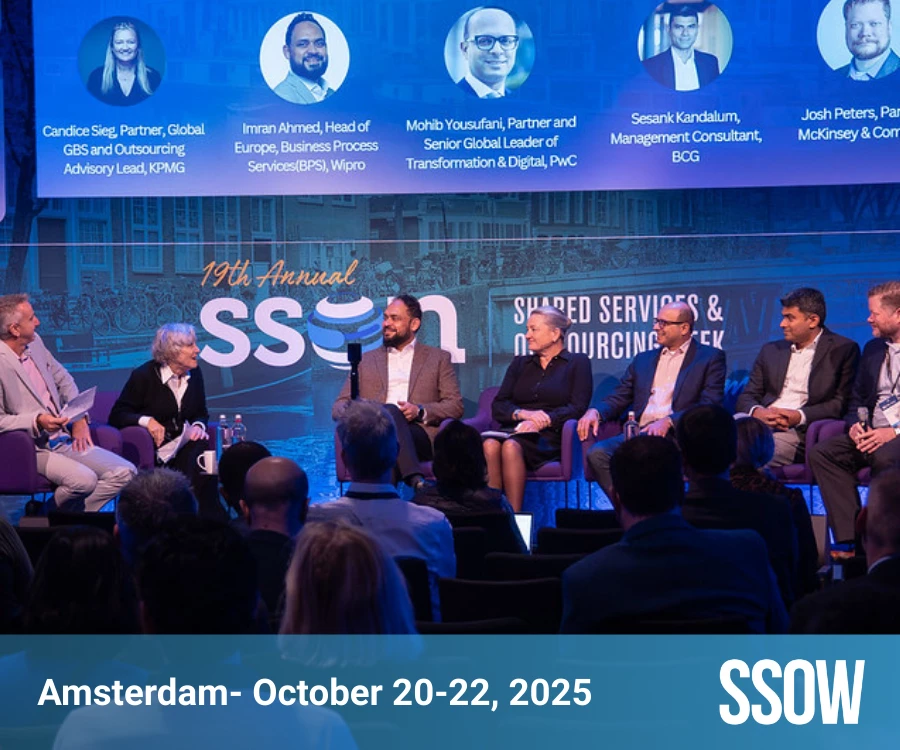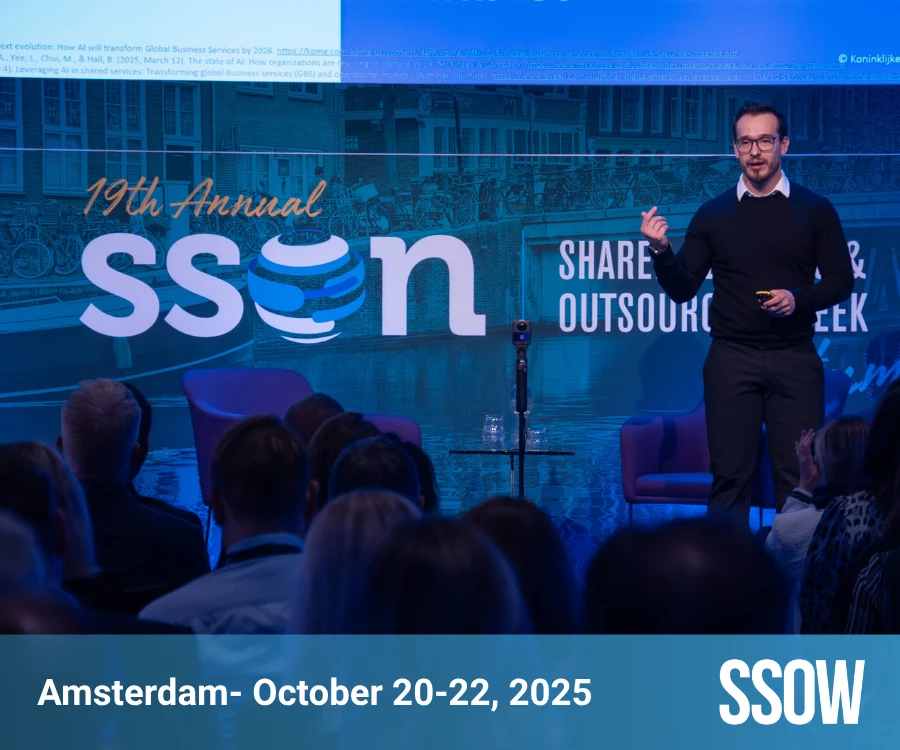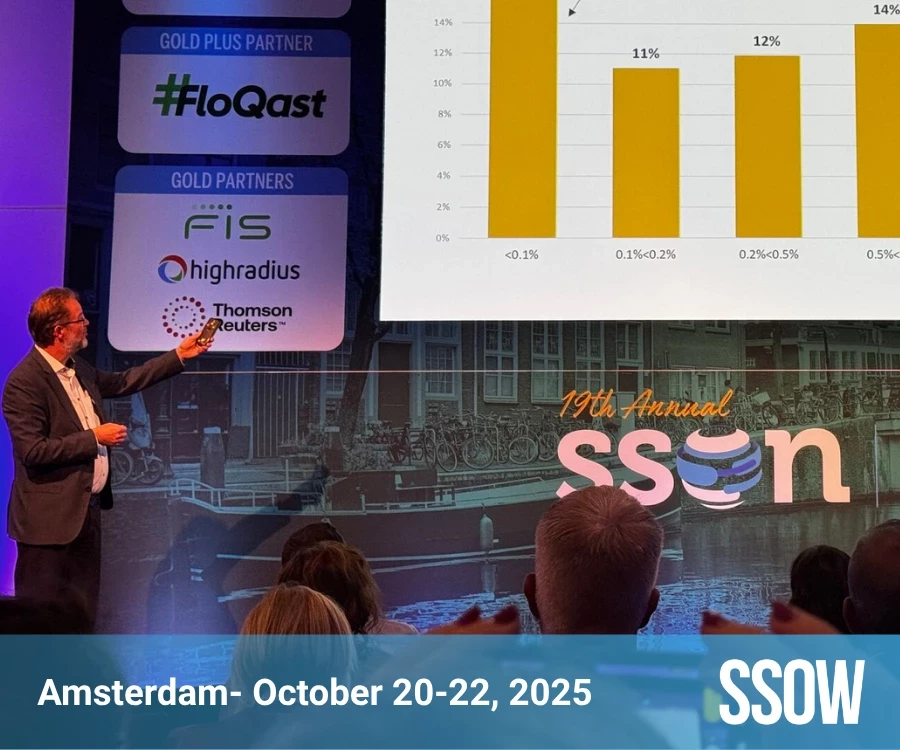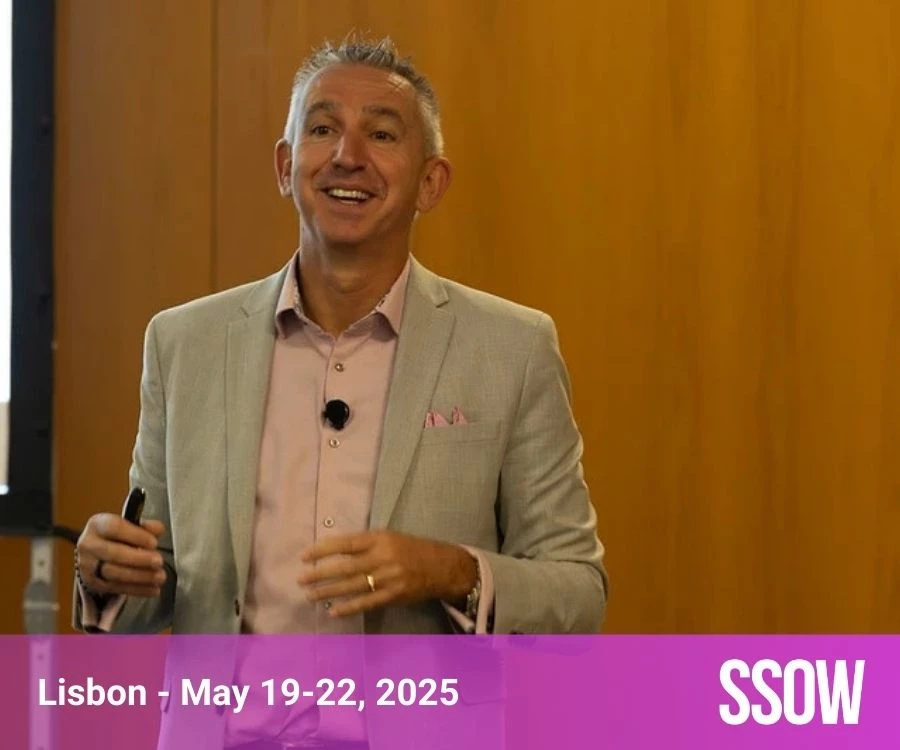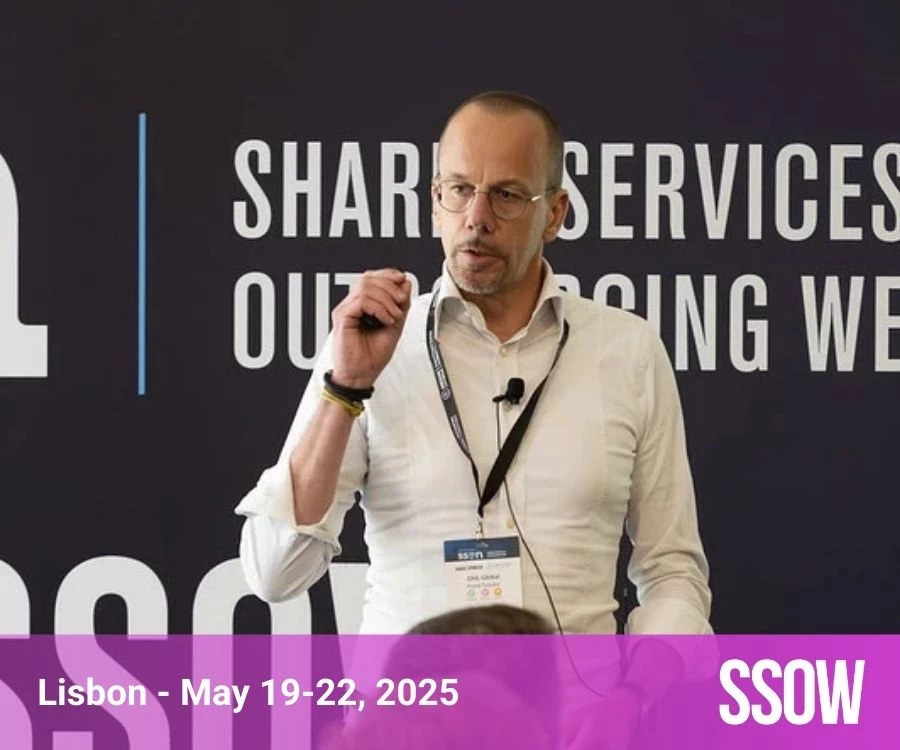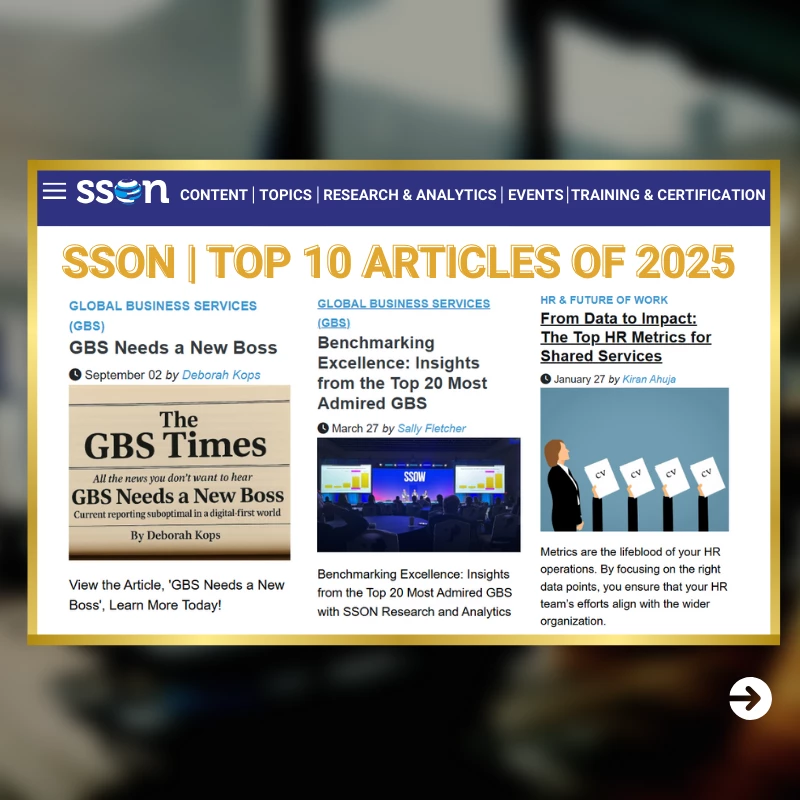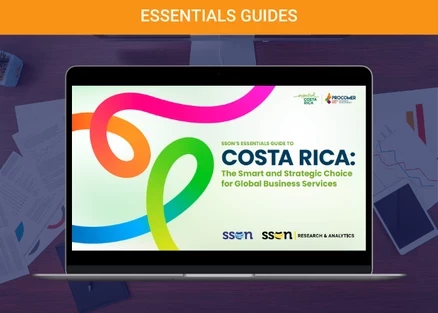
Front Office Services in GBS: Ask the Expert
Agentic AI, Tariffs, the Back-to-Office debate, there are a myriad of trends shaping the business world in 2025. But how are they impacting the Global Business Services space? Are they world-defining or something that will pass us by? At the Shared Services and Outsourcing Week Europe 2025, SSON spoke to some of the world’s best Global Business Services leaders about their take on big business trends.
This time, we sat down with Robert Weltevreden, retired GBS leader, formerly head of GBS at Novartis and at Syngenta, to get a clear view of to understand how GBS are redefining their role by integrating front office services into their operating models.
What’s driving the integration of front office services into GBS, and what type of services are shared services adopting?
Weltevreden shared a unique perspective on this question. As an acting judge for the SSON’s World’s Best GBS Award Panel, he has a front row seat in terms of what's happening exactly in this space. The selection process for this award involves looking at the differentiation in GBS, what their business impact is, and their value beyond traditional back-office operations. From this, Weltevreden has noticed that there are more GBS organizations transitioning into the front office, from “going into supporting sales or even performing sales activities, supporting marketing or even actually executing marketing activities.”
What kinds of front office services are Shared Services adopting?
Weltevreden shared his support for this trend of driving the integration of front office services into GBS, stating that it is great to see that the service portfolio is being deployed in that area. It is ever expanding, ranging from “content creation for marketing activities all the way to calling customers directly to try and promote your products and everything in between.” GBS organizations do this at scale, often from centralized hubs serving multiple countries. By treating these functions as structured, measurable services rather than ad hoc, local tasks, GBS teams bring efficiency, scalability, and process optimization. This transformation mirrors core GBS principles: standardization, KPIs, and service ownership. Content creation for example, was done previously by external agencies and the results could be patchy, with a lot of duplication, poor quality and redundant efforts, but when GBS take it on they are streamlining and making sure they get to the end goal faster, so it scales quickly to as many of the marketing departments in the organization as possible.
In contrast to traditional GBS activities such as procurement, R2R or IT activities, these newer services are never mandated. Instead, they're always provided on a pay-as-you-use basis or an outcome-based success basis. Weltevreden stated that GBS teams are behaving “as if they're independent third parties having to sell these services into their organization.” Which he agrees makes a real difference, because GBS teams then become commercially and customer focused. To succeed, Weltevreden suggests that GBS teams need to do this, and if they don’t, their “customers” within the company can simply choose not to use them.
What challenges and opportunities do you foresee when integrating front office functions into what's traditionally a back office GBS?
Integrating front office work into GBS isn't easy. Weltevreden advises leaders to “Start with one country, one business unit, one business line. Learn from there. Do not pretend like you can do this at scale for the globe from day one.” Piloting with a friendly customer, a friendly country, or a friendly business line enables you to learn from there. As trying to roll out too quickly risks failure, especially in customer-facing areas.
How would you ensure that front office services that are integrated into GBS continue to deliver customer-centric outcomes whilst maintaining efficiency and scale?
The big difference Weltevreden believes in these services is that they're being provided on a pay-as-you-use basis, by which “GBS teams either are successful, or their customers are not going to return, so that focuses the mind.” Weltevreden stated that he used to run his GBS organization “50% mandated service, 50% pay-as-you-use.” With the 50% pay-as-you-use, being super customer-focused. The incentive Weltevreden shared is that “if they're not customer-focused, then next year they're not going to be employed.” GBS teams have to be ‘customer obsessed,’ with a specific focus on the importance of communication, “communicating what you've done, and what the value is of what you bring to the table from your teams.”
Lastly, where should GBS leaders begin if they want to integrate front office services?
Weltevreden states that it “depends on where your capabilities have historically sat.” He recommends that if you start with “order management, for example then it's sort of logical to extend that activity with a more sales-oriented activity towards third-party customers.” From this, you would have already “got the relationships” and the “customer sensitivity,” which is a great extension. Weltevreden concludes his insights by advising that GBS organizations should start with their strengths lie and build from there.
To gain more excellent insights from our SSO Network, don't miss out on our upcoming Shared Services and Outsourcing Week Autumn.



